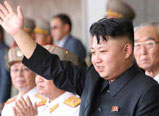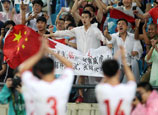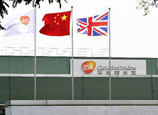
BEIJING, July 29 (Xinhuanet) -- A series of new policies on regulations will inject new impetus into restructuring and stabilizing China’s economy and enhance endogenous driving force for the growth of its real economy in the long run.
Last Wednesday, China decided to eliminate a number of systematic obstacles in economic transformation and upgrading.
They include exempting value-added tax (VAT) and profit tax for the micro and small-sized enterprises (MSEs) released at a State Council executive meeting presided over by Premier Li Keqiang.
This move will ease the tax burden of more than six million MSEs, save them 20 billion yuan in expenditure while creating jobs and raising income for tens of millions of people.
To coordinate with the tax policy, the executive meeting also said China will boost foreign trade and exports through gradually simplifying customs clearance processes by the scheme of "one-time declaration, one-time inspection and one-time clearance".
In addition, it said, China will boost foreign trade and exports through adjusting operational fees; encouraging financial support for profitable companies; facilitating the exports of private SMEs; providing zero tariffs for exporters in the service sector; increasing imports and maintaining a stable yuan exchange rate.
"It's necessary for China to put forward trade support measures so that foreign trade will maintain moderate growth. Otherwise, declining trade will bring a negative momentum to the country's economic growth," said Huo Jianguo, president of the Chinese Academy of International Trade and Economic Cooperation.
Moreover, the executive meeting confirmed the country will fully open the market of railway construction, helping private capital available to invest in inter-city and municipal railways.
The move could diversify financing channels and attract more social capital for construction projects after abolishing monopolies and investment barriers, analysts held.
Also, China's central bank has canceled the ceiling limit for banks' lending interest rates, scrapped the controls on bill discount rates to let the financial institutions make their own rates decision according to commercial principles.
This fine-tuning is a positive step to further marketize China's interest rates and would lower the financing costs of companies as well as optimize financial resources of the society, according to Lian Ping, chief economist with the Bank of Communications.
Huang Yiping, a Peking University professor, added the move is a manifestation of the government's determination to deepen reforms and develop the nation’s real economy.
"We must really use our limited funds and resources for the development of the economy and the improvement of people’s lives," stressed the State Council in a statement.
















 Singer in spotlight after blog post
Singer in spotlight after blog post


![]()
